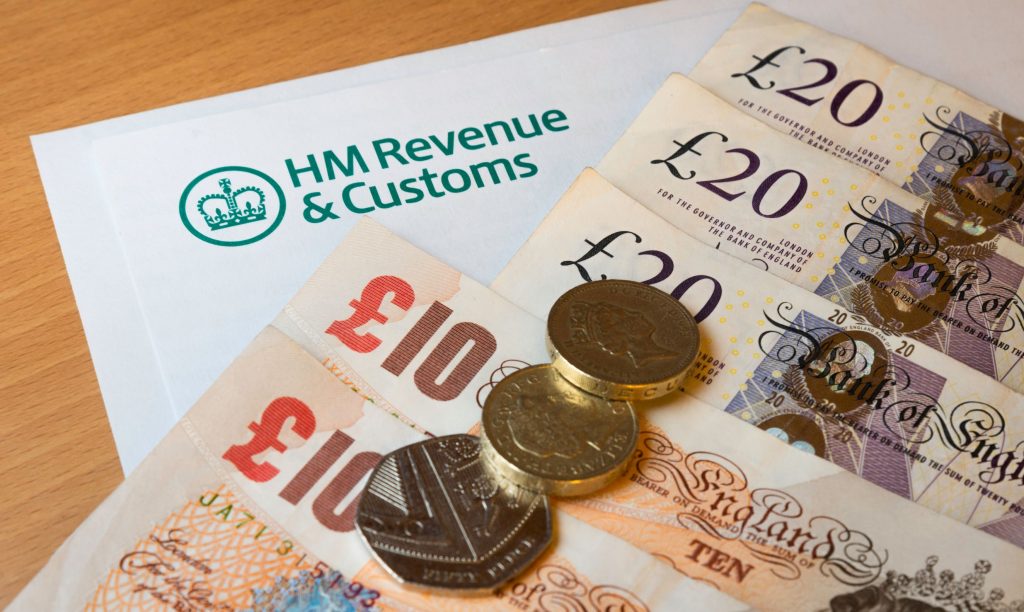
You can save money this year by following these tips
What do you do when the economy tanks? Do you cut back on everything or just some things? What if you could save money and have more money left over to spend on what matters?
Well, here are a few ideas that might help. They all assume you’re not dealing with a crisis but simple savings and budgeting problems that need to be worked on anyway. But even if things aren’t great, these strategies can still be implemented.
Just because the world is going through some tough times doesn’t mean that expensive dinners at fancy restaurants and lavish travel don’ts should be part of your lifestyle. In this post, we talk about some ways that you could save big money while still having fun. So go ahead, check them out – and see if any of these ideas appeal to you!
1. Estimate your monthly expenses and savings needs

When it comes to saving money, you have to know your numerical requirements. This is crucial because whatever you decide to do, you’ll need the money to get you through the month. As such, you need to estimate how much money you’ll need every month and then work from there.
Estimate your monthly expenses and then see where you can cut back. You can then use the extra money to help fund your new or upcoming expenses. This is important because many of us have busy lives and don’t always have the time to meticulously track our spending. It’s always better to be safe than sorry and saving a small amount each month can make a big difference over time.
2. Ditch the big brands
We loved the fact that we didn’t have to look for a specific brand name as many grocery stores carry the same foods. Replacing one brand with another will save you money and allow you to buy more products.
If you’re strict about not buying certain items, it can be a real bummer when you have to stock up on your favourites at the end of the month. Look into having your subscription to certain brands skipped or cut back on the amount you purchase.
3. Save where you can
When it comes to saving, some of the most effective methods are often overlooked. You may not have considered saving at the checkout stand or in the gas station. There are several simple ways to save money every day.
If you don’t have to buy something at the store every day, you’re likely going to save money. Even if you only save £25 per month, that’s enough to get you excited about saving!
4. Look into investment savings
If you’re looking to increase your savings rate, one area you could look into is saving for investment. This could be an area of your budget that you put a large amount of money into each year, but don’t necessarily see the value in.
One great investment to look into a fund for the long-term. This isn’t just for people who are retiring soon, it can help you address any other financial goals you have such as saving for a car or house purchase. Many different investment options can be used to save for your future. One option is to look into funds that are passively managed. The funds you choose can simply invest your money in a way that provides you with a guaranteed return.
Saving for an emergency fund or long-term growth fund is a great way to build wealth. What could be considered an emergency fund depends on your specific circumstances. For example, if you get a car repair bill that comes in over the limit, you may have to save up money from your salary to pay it. Investment savings can be a great way to make money for short-term goals. If you’re saving for a vacation, you can use the money saved towards your future travel plans.
5. Plan for long-term goals
One way to ensure that you’re saving for the long-term is to have a plan. This could be as simple as writing down all of your long-term goals and setting a goal for each area of your life.
For example, your long-term goal could be to save for a vacation to Las Vegas. Now, having a plan for what you want to do each month will allow you to save money while you work towards your goal. You need to make sure that your long-term savings account is accessible and manageable so you don’t rack up massive bills each month. This also applies to your monthly budget. Set a budget but make sure it’s achievable each month so you don’t fall behind.
6. Be organized
Your financial planning should go beyond the courthouse steps and into the weeds. You should know how much money you need to save each month, where you should be saving and what method is best for your particular circumstances.
If you have a family account, you can use that money for savings. If you have separate savings and a spending budget, then you will have to decide for certain what type of money set-up works best for you.
7. Make the most of tax deductions

One area that could use some organization is your taxes. This is the perfect time to look into tax-free savings accounts. These are accounts that allow you to earn interest on your money and expenses such as gas fill-ups or a vacation abroad would be tax-free.
You can also look into syncing your taxes with your bank account. This will allow you to track all of your earnings and payouts from one place. This is especially useful when you’re figuring out your taxes for the year.
8. Look into your credit scores
Credit scores are often overblown and oversold. While they are a great indicator of someone’s creditworthiness, they don’t take into account the fact that someone may be managing their finances poorly.
A bad credit score can have a big impact on your ability to get loans and other financial services, so it’s important to take care of your finances. A free credit score is no replacement for expert financial planning, but it’s a good indicator of someone’s financial health.
9. Plan for the future
One way to ensure that you’re building wealth for the long-term is to have a plan for the future. This could be as simple as putting away a certain amount of money each month.
For example, you could set up a savings account at your local bank and put £50 each month into it. This amount could grow over time or be enough for a small car payment or vacation.
You also need to make sure that you’re diversifying your investments. This will allow you to withstand any stock market crash or financial loss that may come about. Diversification is a key factor when it comes to money management as it allows you to withstand tough times as well as successful times.
10. Get a grip on pricey groceries
One area that you may want to look into is cutting back on your groceries. One way to do this is to look into making meal preps. This allows you to prepare a variety of foods that you may not be able to buy fresh each day.
For example, you can make soup, chilli, casseroles and stews that you could freeze for future meals. You also want to make sure that you’re eating healthy. This will allow you to stay healthy and happy while you’re saving money.
You can also shop smarter by using coupons and other special deals. The average British spends £1,300 per year at the grocery store. That amount could be £100 lesser if you use store financing or take advantage of special promotions.
You also don’t want to spend money on impulse buys. It’s easy to spend money you don’t have on things you don’t need. Try to stay mindful of your spending as you navigate through the grocery store checkout line.
11. Eat fresh and seasoned foods
This one may seem obvious, but when you don’t have money for fancy foods, you’re less likely to get bored of bland food and get snack-worthy cravings. This means that you’re more likely to stick to a budget and make healthy choices.
Eating at home allows you to create a fresh, home-cooked meal that is packed with nutrients. When you cook your own food, you are in control of the ingredients and know exactly what goes into your body and how much you are spending on food.
So, instead of buying a ton of packaged, processed foods and taking in a lot of calories, try growing your own vegetables and fruits at home. You’ll get a much more balanced diet than if you rely on prepackaged foods. This may save you money in the long run. And, you might even start enjoying some of the same healthy foods you used to love!
12. Take advantage of freebies

Everyone has weaknesses. We all have things that we’d like to do but don’t have the money for. There are plenty of freebies and deals out there that you can take advantage of.
Whether it’s a coffee shop free pour or a free meal at a restaurant, there are plenty of opportunities to get free stuff these days. Most of these deals are easy to miss. You might go to the grocery store, and not even know that they have free samples. Or, you might go to the gas station and notice a freebie sign. All you have to do is look for it.
And, if you are lucky enough to work in an environment where you get free food or drinks every day, then you need to take advantage of that. There are lots of free food chains and places where you can get lunch or dinner for free.
13. Don’t buy fancy stuff
Spend your money on things that you need, and things that you want. And, don’t feel like you have to have everything that comes with the fancy store-bought stuff. There are plenty of cheaper alternatives, and you’re helping your wallet stay full, by avoiding spending and buying higher-priced items, that you don’t need. And, don’t forget about the rewards program at work or school.
14. Find cheaper alternatives to products that you do want
If you are determined to buy that fancy new phone that you’ve been dying to try out, then go for it. But for the most budget-friendly phone, look for ones that are made in smaller batches. These usually cost less, are durable, and are likely to be less risky to the environment.
15. Don’t forget about the rewards program at work or school
If you are a working professional who wants to try to save a little money, then look into joining a rewards program. There are so many great options, and they can help you save money while you are in school or work on your job. For example, apps are allowing you to earn gift cards after a certain number of rides are recorded. And some home depot store has rewards programs for home improvement and other services that let you save when you shop local.
16. Take advantage of rebates, deals and sales
You probably don’t think about these things, but now and then, a great deal comes along. Whether you have to shell out the money or get a rebate from a company that you purchase from, almost always, it’s worth it. There are tons of rebates out there. Every year, big store retailers offer them.
You can also look for ads on TV, and online. Sign up for emails, and then, follow through on them. Most deals have an expiration date. So, don’t wait too long to take advantage of them. And, don’t forget about the rewards program at work or school.
17. Research is key
If you are going to shop for products online, make sure you read the reviews. This will help you decide if the product you are looking at is worth the money. And if it isn’t, you can always return it and get your money back.
18. Cut back on unnecessary expenses
When you are looking at your budget, make sure that you are realistic. Stop trying to stretch your money further. Cut back on things that you think you will not need.
You don’t need a fancy computer to use the internet. You don’t need a fancy computer for social media. You don’t need a fancy computer to do any of the things that you do already. You don’t even need a computer. A simple smartphone is enough. And, you can save a lot of money with that too.
Cutting costs is always a good idea. Whether it’s with coupons, free stuff, or deals, you’re helping your wallet stay full, and reducing the amount of money that you’re spending. Coupons always work better than cash on the dollar amount. So, look for deals on non-food items, like gas, groceries, utilities, or movie tickets. And, use those coupons.
19. Track your spending
When it comes to budgeting, tracking is key. Create a budget and stick to it. If you are bailing on your diet, then track what you are eating. Make a point of logging every meal and snack that you take. This is the key to saving money and developing healthy habits at the same time.
20. Look for sales and discounts

If you see a deal that you think you can use, look for places where they have deals. You might even look online. Some stores will have deals online that they won’t show you in person, so look there too. You might find that you can score free stuff, or deals, every time you go into a store. And, you might even find some deals online that you can’t get in-store.
So, check both places, and then, check back in a month or so to see if you still got the deal. Take advantage of these deals as soon as possible, as most are limited-time offers.
21. Make a budget and stick to it
Finally, don’t forget about the budget. Budgets are really important. They are a way for us to plan, and determine exactly how much money we need to save, and what we should be saving for.
Create a budget that you stick to. Even if you have to force yourself to think about it during the day, make sure that you are sticking to it. These are some great ways to save money this year. Use them and make sure you come back next year with even more savings!
Finale
There are many ways that you can start saving money this year. The earlier you start, the easier it will be to progress throughout the year.
During this time, you will be putting money away that will allow you to splurge on your favourite treat or costly habit. The best way to do this is to have an emergency savings account and budget in place. This will allow you to save money without having to think about it every single day. It will also allow you to look at any extra money that is generated and use that to purchase something that you want or need.